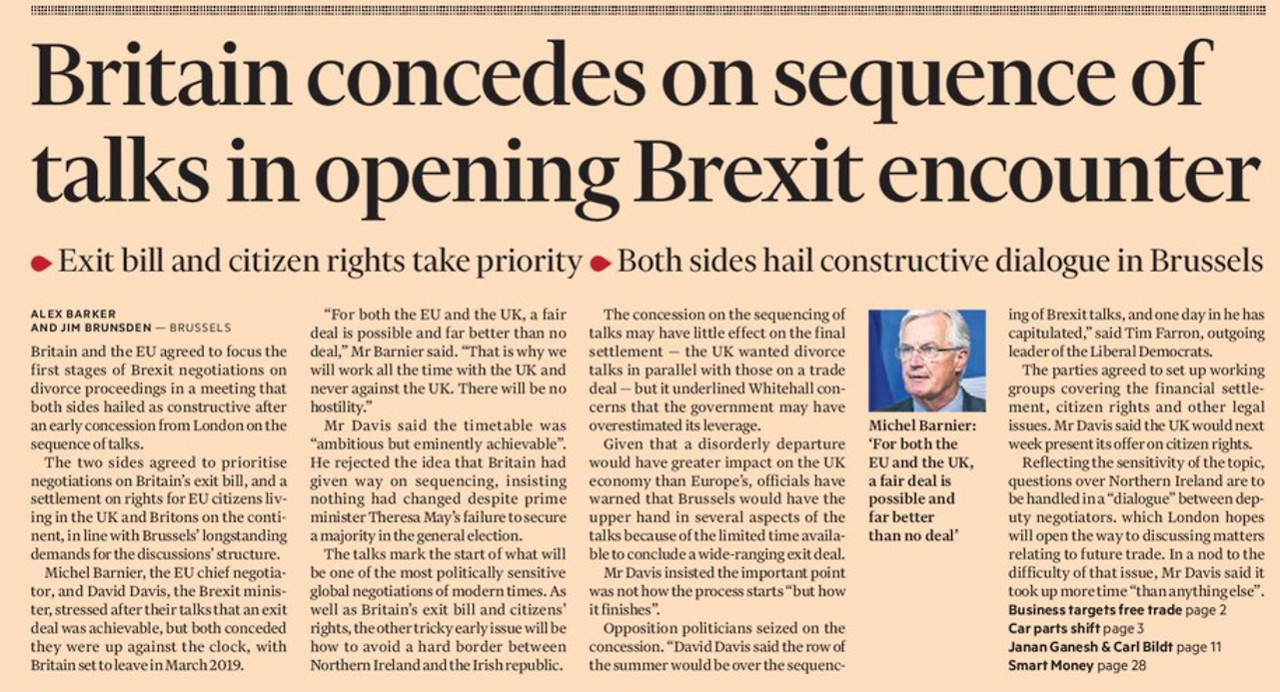The UKs relationship with the single market has been debated extensively over the last few months. The same can be said of the costs and benefits (economic and otherwise) of free movement and immigration to Britain. What has been less discussed, but is worth considering in the current context, is the relationship between free movement of capital, goods and services, on the one hand, and freedom of movement on the other. Why, economically speaking, do these four freedoms go together?
The simplest answer to this question is that the free movement of capital, goods and services without free movement of people is bad for workers. Having free movement without the free movement of capital goods and services, however, would be bad for business and investment. A balance between the two is needed in order for markets to function properly. We can illustrate this using a few hypothetical scenarios, adapted from an argument made by Joseph Siglitz, which, although simplifications, demonstrate important directions of travel in both cases.
First, imagine a situation in which no worker is allowed to relocate to different countries for a new job, while companies could move at a moments notice, continuing to export to the country theyve just left. Businesses would simply move to wherever wages were lowest, and carry the real threat of leaving should employees become too demanding with wages or conditions. Desperate to bring jobs back to their country, employees whether organised or not would have to lower their demands to the lowest possible subsistence level, and wages everywhere would be permanently supressed. This would generate a race to the bottom great for those at the top, but terrible for everyone else.
The balance of power between employees and employers would be tipped all the way in favour of employers, and workers whether unionised or not would be in a difficult situation. Contrary to the common discourse, there is also evidence that labour mobility can help to push up wages overall. Of course, in cases where migration is particularly one-sided, wages might go down in certain localities, but the overall trend should be positive.
Second, imagine a situation where employees were free to move around with no restrictions from states, and with a high degree of willingness and a low cost to relocate for higher wages near perfect labour mobility. At the same time, there are high tariffs on trade and capital flows are severely restricted. Workers would simply move to wherever wages were highest, and employers would have to keep raising wages to keep their employees from leaving.
This would be great for workers, and indeed Stiglitz leaves the argument here, claiming the reason we dont have mobile labour without mobile capital is simply thats not the world we live in
partly because the one percent doesnt want it to be that way. But where would the incentive be for investment or taking a risk on starting a new business if any potential profits are squeezed to zero? Why would companies bother to improve their practices if they received no share of the benefits of productivity gains?
The threats of either party leaving need to be somewhat in balance in order to ensure the market functions properly. Of course, this could be achieved by closing borders and introducing import quotas and tariffs. But then you lose all the efficiency gains of trade (see Ricardos theory of comparative advantage), and you get a sub-optimal allocation of resources including workplaces and suitable employees being poorly matched up. In order to gain these benefits, all four pieces of the puzzle (goods, services, capital and labour) need to be mobile. A market with severely restricted labour mobility is a rigged market, not a free market.
This isnt a revolutionary insight by any stretch of the imagination, and of course these theoretical scenarios dont capture the realities and subtleties economic, political and social of any particular case. But in our public discourse we appear to have come to the conclusion that free trade without free movement is the ideal outcome, whether we think its politically feasible or not. Whatever your political preferences, its worth remembering that the four freedoms are taken (or left) together for a reason.


